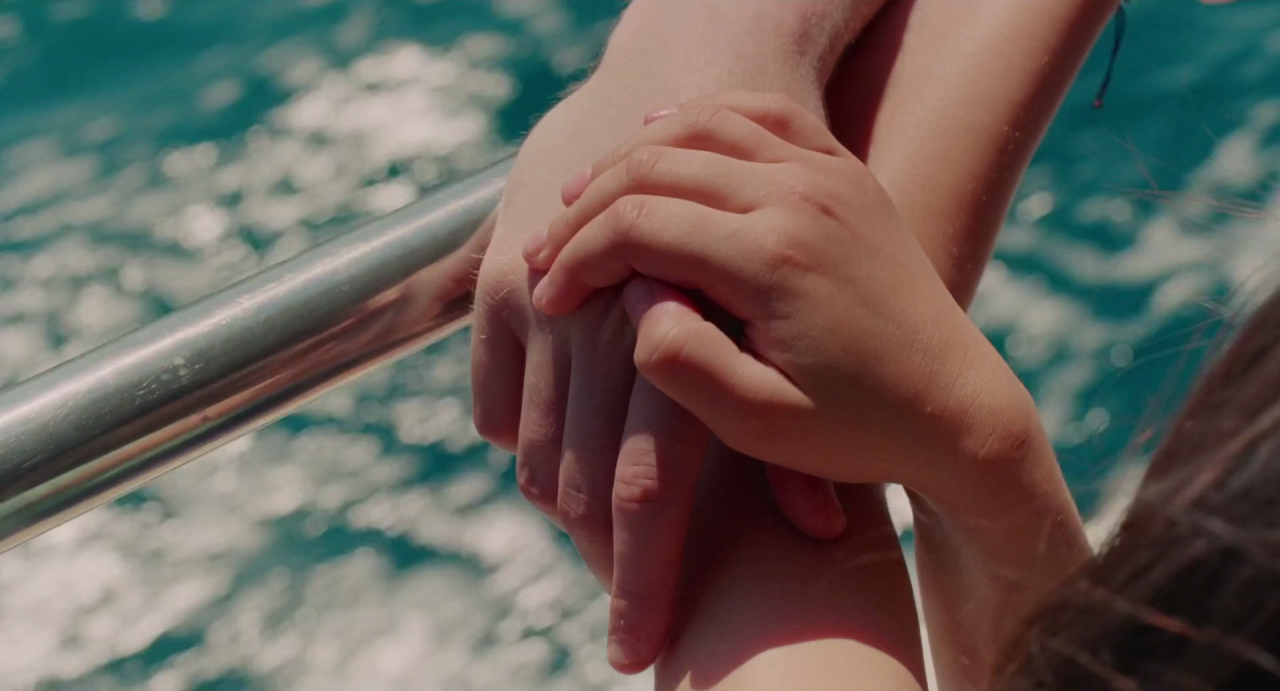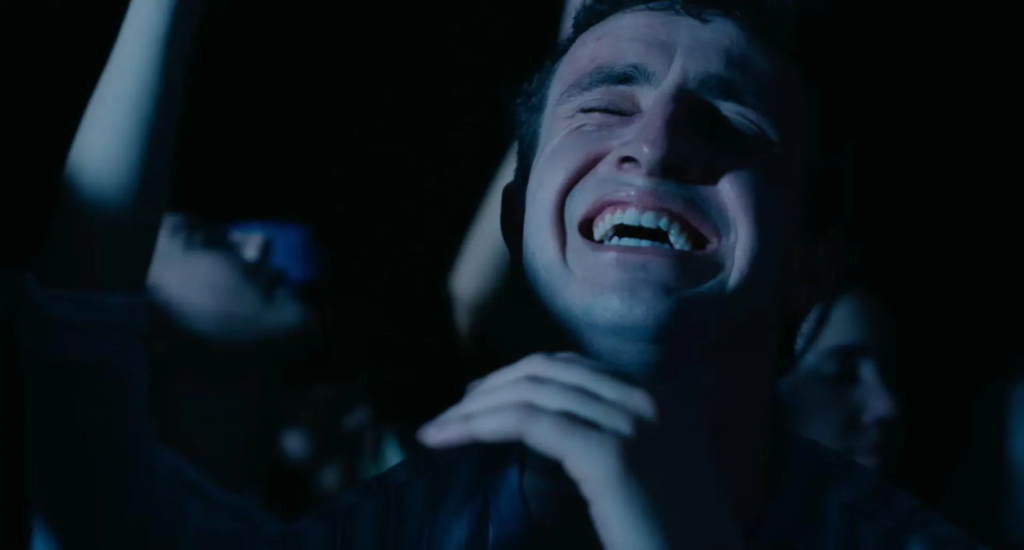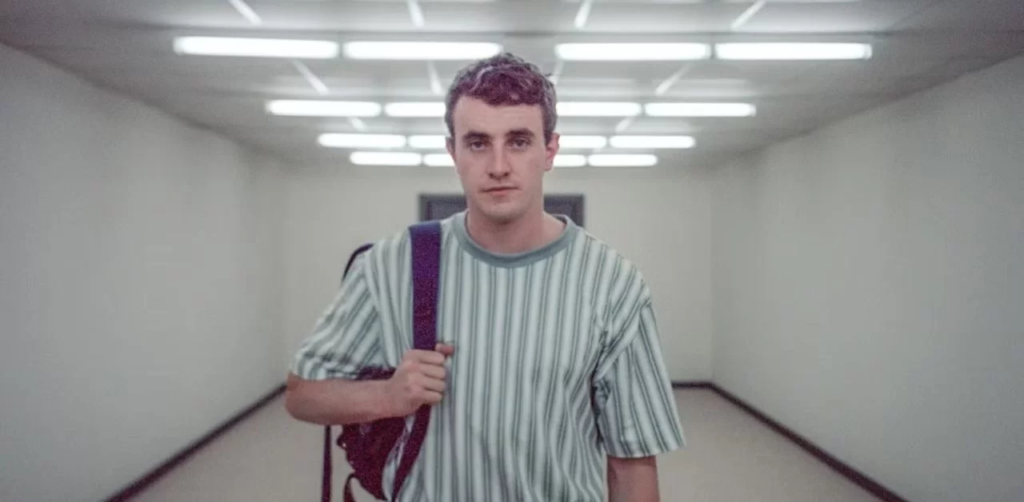Immortalized Through Memory: The Beauty of Aftersun
by Peyton Trout
This article contains spoilers for the movie.
“[S]ometimes at playtime I’ll look up to the sky and if the sun is out, I’ll think about the fact that you can see the same sun. So that even if we aren’t in the same place, we kind of are you know?”



Charlotte Wells’ award-winning debut film Aftersun tells the story of a girl, Sophie, and her troubled father, Callum, as Sophie reflects upon the last vacation they took together. The story blends the beauty of childhood and love with the stark reality of depression and loss.
The movie is set at a sunny resort in Turkey as the father and daughter embark on a vacation before Sophie heads back to school in Edinburg, Scotland, and Callum returns to London. It becomes very apparent that Sophie is the child of either a divorce or a love-lost relationship.
Throughout the movie, eleven-year-old Sophie displays great maturity and high understanding of emotional pain, but still resides in a pool of childlike wonder for her father and the world around her. Sophie is talking to her mother on the phone before she hands it off to Callum, who ends their cordial phone call with “Love you.” Later, Sophie asks why he still says “I love you” to her mom when they aren’t together anymore, which Callum has a difficult time explaining, ultimately telling Sophie that her mother is still his family so he has to love her. Sophie then recollects on a time where she overheard a phone call between her parents and thought that they were getting married. She said she was very excited, but negates the emotion by saying, “I was pretty young though, like maybe seven.” Through her journey into the brink of adolescence, Sophie tries to push away any emotion that may seem immature or a product of youth.

We follow Sophie as she observes older teens discussing sex, kisses a boy illicitly by the pool at night, and sees two men kissing passionately. We see Sophie’s desire to grow up faster as she reads teen magazines, plays pool with teenagers, and rejects younger playmates, but we are reminded she is simply a child as she laughs after scuba diving, spreads mud all over Callum, and sings karaoke.
While the majority of the movie is focused on Sophie’s coming of age, Callum shows glimpses of depression in varying scenes. We can tell he doesn’t have a firm grasp on his life even though he is thirty years old (turning thirty-one in the movie) and he is subject to mood swings in social situations. One of these defining moments is when Callum is putting on scuba gear and tells the instructor he can’t see himself at forty; he is even surprised he made it to thirty. On the day of his birthday in the film, he is very hostile to young Sophie, who – in one scene – surprises him by registering for karaoke, but he forcibly tells her he won’t do it, so she sings by herself onstage before he angrily tells her he’s going up to the room.

Callum is a deeply complex depressed man who shows us glimpses of his instability, which is fully fleshed out when we see him race to the beach in the dead of night and watch as he disappears into the black waves. We later see him sitting naked on the bed, his body racked with deep, violent sobs.
The movie is interspersed with random flickering scenes of what appears to be a rave. The rave starts out full of random people and slowly begins to show a woman with dark hair making her way through a crowd to what turns out to be a dancing Callum. We learn later in the film that the woman is grown-up Sophie.

Arguably the emotional peak of the film is the notorious dance scene during one of Callum and Sophie’s last nights in Turkey. Callum has a spurt of energy and glides onto the dance floor, shuffling with his arms in the air, making Sophie giggle from embarrassment. While “Under Pressure” by Queen and David Bowie rages in the background, the scene intensely flashes back to older Sophie and Callum at the rave, where she finally makes her way to him. He’s dancing the same way as on their vacation and she desperately tries to wrap her arms around him, but he won’t stop dancing. He flails around and she eventually embraces him strongly. We flash back to the vacation quickly where young Sophie has her face pressed against a swaying Callum, both hugging each other. Back at the rave, Sophie and Callum are separated again. Coupled with the intense chords of “Under Pressure” and its lyrics, the viewer feels Sophie’s palpable loss and inability to keep ahold of her father.

The final scene of Aftersun shows Callum in a white-walled room with double black doors at the opposite end of it. With his bag slung over his shoulder, he shuts the camcorder, befalls a sullen expression, and slowly turns to walk out the doors. As he leaves, we see a dark room with the white flashes of a rave and soon enough he is gone.
Aftersun is the story of a daughter reflecting on her final trip with her father before his death. Grappling with depression herself, she reminisces on that time spent with her father, achingly trying to find him in these rave memories and, when she does, desperately clinging to him, willing him to stay for just a little longer, but he can’t. The film expertly showcases the debilitating nature of depression and how it can and will impact interpersonal relationships.
The film reminds you to love your family and reminds you what it’s like to be your father’s daughter.
Images (in order of appearance): FilmCompanion, Tumblr, Kinorium, Mubi, Kinorium, Mubi Twitter, FilmAffinity, NPC Magazine.